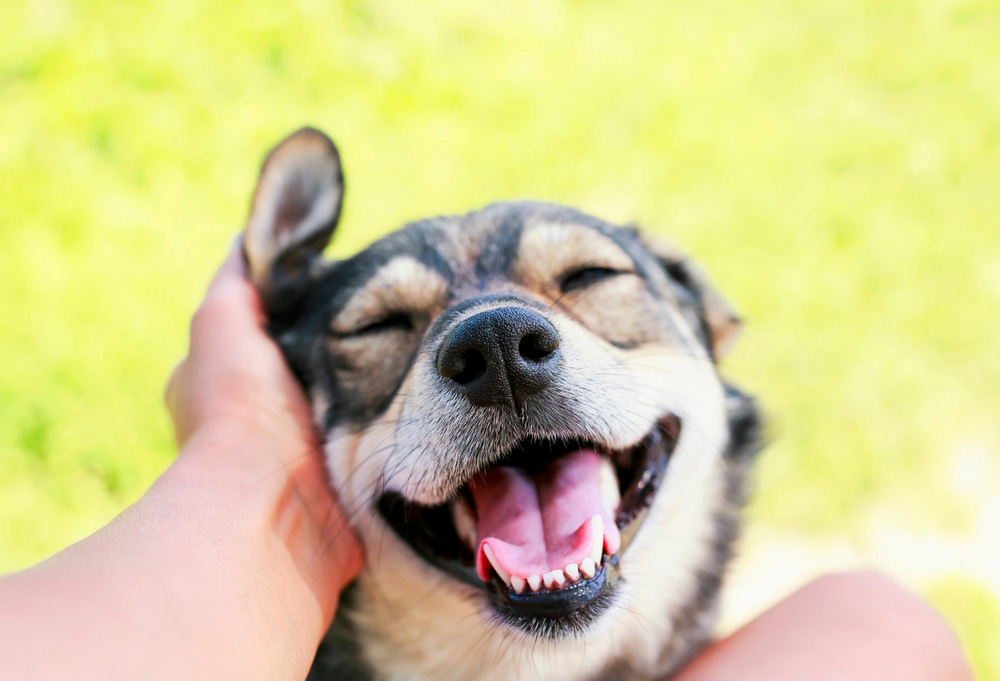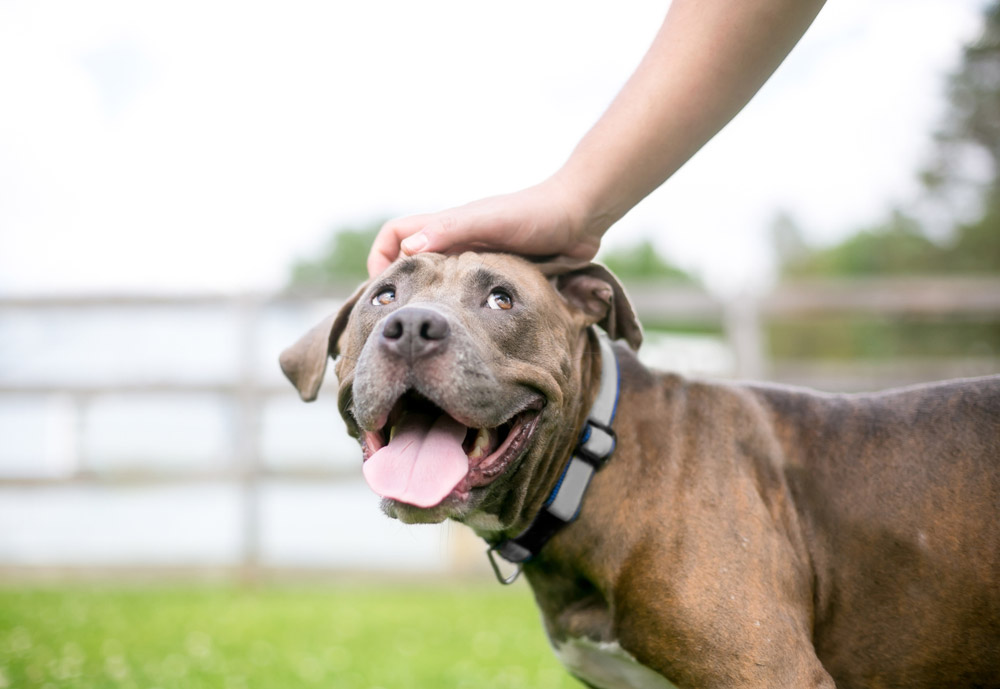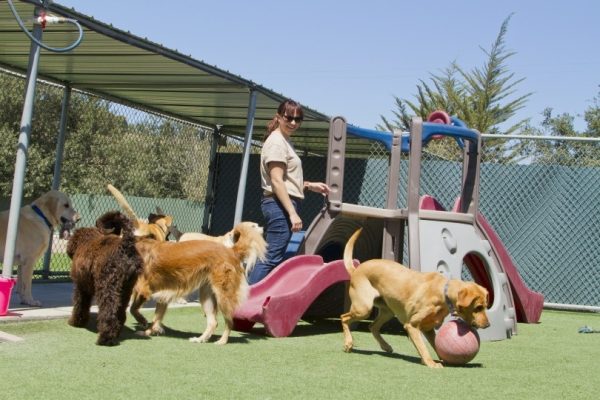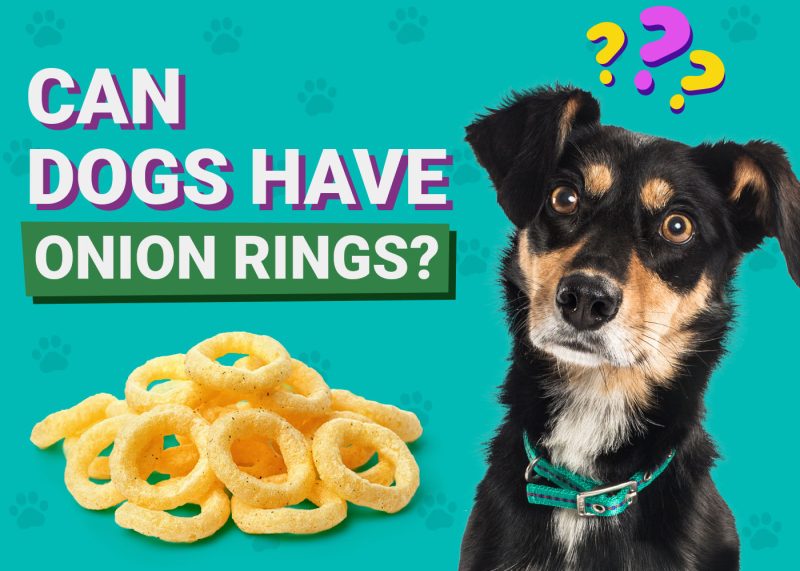“I’m suspicious of people who don’t like dogs, but I trust a dog when it doesn’t like a person.” This famous quote from actor Bill Murray has been shared far and wide by fellow dog lovers who trust their dog’s sense of people’s character.
But can dogs truly tell if someone is a “good person,” especially when morality can be a fluid concept? Sensing a “good” or “bad” person may not be exact with a dog (or humans, for that matter), but they do have the ability to sense people’s emotions and mental state.

Dogs Can Sense Unfair or Harmful Intentions
A study published in Neuroscience & Biobehavioral Reviews in 2017 evaluated the social evaluations of dogs and monkeys. In the experiment, capuchin monkeys and pet dogs were observed reacting to people who were helpful or unhelpful to others.1
Monkeys and dogs were allowed to observe their owners ask a stranger for help in opening a box. In the first scenario, the stranger refused to help. In the second scenario, they came to help the owner. In the third scenario, they did nothing.
After the interaction, the stranger approached the dogs with treats. Dogs avoided the stranger who refused to help the owner but enthusiastically took treats from helpful and neutral strangers.
The results revealed that monkeys and pet dogs are similar to human children in that they pay attention to human interactions and evaluate how people behave, which they can use to decide who to interact with and who to avoid.
These results make sense because primates rely on reciprocity between group members, such as the exchange of food or grooming. Dogs had similar conditioning, evolving alongside humans and offering services like guard duty or hunting help in exchange for food and shelter.

Dogs Can Sense Emotions
Our emotions are clear in our facial expressions, body language, and tone of voice. Dogs are excellent at reading and interpreting body language as a way to communicate with their owners, but they also notice subtle signs in other people.
For example, if a person is acting nervous or hostile, dogs may be cautious around them. They may be uncomfortable if someone is yelling, speaking aggressively, or gesturing wildly, as it could be a sign that they’re agitated.
More importantly, dogs may be able to sense if someone is a danger to them or their owner. This is a natural defense mechanism honed over generations, which is why dogs can be so good on guard duty. They may be able to sense if someone is a threat based on tone of voice or actions.
Similarly, dogs can tell if you’re a safe and welcoming presence. If someone is calm and confident, they will be more comfortable letting their guard down or becoming playful. They feel no need to stay on the defensive and will have a softly wagging tail, relaxed eyes, and a desire to be around that person.

Dog Senses Aren’t Foolproof
While there may be some truth to your dog’s ability to sense good or bad people, it’s important to realize that there are factors that can affect how your dog behaves that have nothing to do with that person.
For example, some breeds are genetically predisposed to be more fearful and aggressive toward unfamiliar humans and dogs, no matter how good their intentions. In addition, dogs who have had a lack of appropriate early socialization to a range of people may also show fearfulness and aggression to strangers.
In general, dogs are more likely to have a fear of men than women. There are several suggested reasons for this such as men’s height, the size of their jaws, tone of voice, testosterone levels, and posture, all of which can appear threatening. It could be external factors as well, such as a baseball cap, that make your dog unsure.
If you are apprehensive about a person, your dog may sense that and react to you and your anxiety or uncertainty. The person may not be doing anything concerning for the dog, but they are following your lead.
In short, the dog’s sense of character isn’t foolproof. It’s important to pay attention to the way your dog is reacting to people around them, especially small children. Generally, children are well-meaning but clumsy and excitable around dogs, which may come across as threatening. If a child is screaming, running around, or playing rough with your dog, they may feel cornered and show aggression.
Some signs that your dog feels uncomfortable or afraid include:
- Yawning, blinking, nose licking
- Looking away
- Turning body away/walking away
- Pinning their ears back
- Standing crouched with their tail tucked under
- Becoming tense and staring
- Growling
If your dog is showing these signs, don’t punish them! They feel unsafe, and it is up to you to remove them from the situation before their behavior escalates to a snap or bite. Take your dog away from the person or area that makes them feel uncomfortable and allow them to calm down. Reach out to a veterinarian if you determine that your dog’s behavior is getting out of hand.
If you need to speak with a vet but can't get to one, head over to PangoVet. It's our online service where you can talk to a vet online and get the advice you need for your pet — all at an affordable price!


Final Thoughts: Dogs Are a Good Judge of Character
While the situations can vary, a lot of dogs can sense body language and use that information to decide if they’re safe and comfortable around certain people. It’s not a foolproof way of identifying good people from bad people, but it is a reliable indicator of how comfortable and trusting your dog is around a particular person.
See also:
Featured Image Credit: Mary Swift, Shutterstock



















